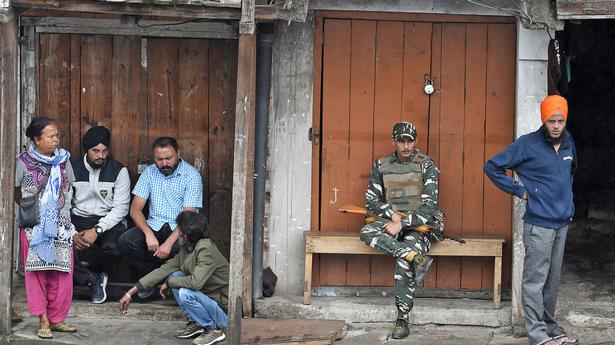
Political parties, NGOs oppose Shillong Sikh’s relocation conditions
The Hindu
The Sikhs and other non-tribal residents have demanded land and house-building expenses for moving out of Harijan Colony in a prime commercial area
Some political parties and NGOs in Meghalaya have opposed the conditions set by Mazhabi or Dalit Sikhs and other non-tribal residents to move out of a prime commercial area in State capital Shillong.
The Harijan Panchayat Committee (HPC), representing the residents of Shillong’s Harijan Colony or Punjabi Lane, had agreed to relocate in April, four years after a communal flare-up associated with a drive to evict them. There are 342 families in the 3.33-acre colony with two-storey hovels flanking a 300-metre lane.
The conditions including resettling the residents in one locality with 200 sq. metre land per family, providing each family with ₹20 lakh to build basic dwellings, letting some 60 community shopkeepers to carry on with their business in Harijan Colony after relocation and leaving religious structures in the vacated area untouched.
The United Democratic Party (UDP), the largest ally of the National People’s Party in the coalition government, said the HPC’s demands were “absurd, illogical and against the basic tenets of equal opportunity and justice”.
UDP leader Paul Lyngdoh said only the government employees among the Harijan Colony residents should be shifted to designated quarters and the others made to leave the area.
“If government employees start demanding permanent land and buildings to be built by the government, it will set an unacceptable precedent for all government servants,” he said.
Saleng Sangma, the State president of the Nationalist Congress Party, said the government should not buckle under pressure and accept the “unreasonable” demands. The issue should be handled according to the court’s directives, he said.













